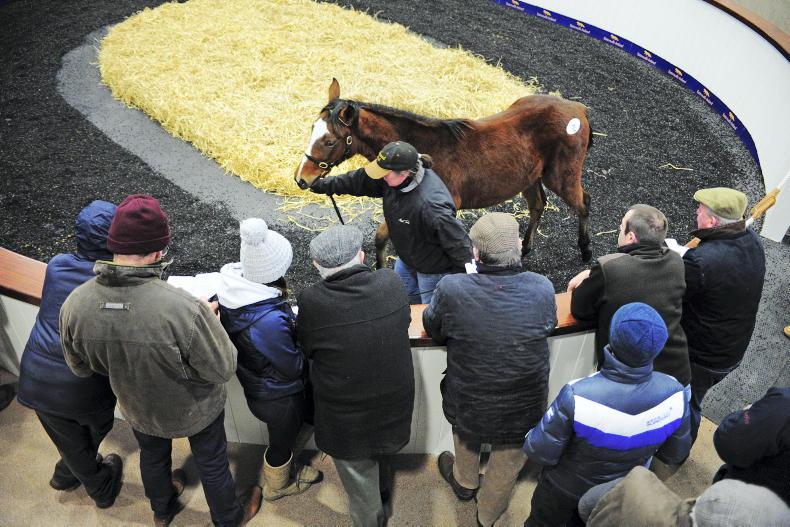CLOSE to 1,500 foals were purchased at the Goffs and Tattersalls foal sales in 2022. Of this group, 62% were re-sold at one of the major yearling sales in 2023 (Goffs Premier, Tattersalls Ireland September, Goffs Orby and Tattersalls October).
We used the average costs and revenues of these 929 pinhooks to estimate their profitability. The costs include the purchase cost of the foal and an assumed keeping cost of £12,000. Revenues consist of the yearling hammer price minus sales commissions. The average pinhooking profit in 2023 was £9,561, representing an average return on investment (ROI) of 18%.

However, at the individual pinhook level, profits can vary widely from the average. For example, one of the most successful pinhooks was realised by Tally-Ho Stud, who sold the Cracksman x Dromana colt for 410,000gns. The foal only cost them €48,000.
At the same time, five pinhookers lost more than 90% of their investment.
Many pinhookers sold only one yearling, whereas three Irish pinhookers sold 20 or more. Tally-Ho Stud, Lynn Lodge Stud and Yeomanstown Stud realised an average ROI of 51%, 25% and 22%, respectively.
Profitability varied greatly by sire as well (Table 2). The deviations from the average most likely relate to changes in expected yearling prices based on new information since the 2022 foal sales. This implies that especially young sires with limited information can have extreme results.
For example, the young sires Blue Point and Havana Grey realised a very high ROI, most likely because their racing offspring far exceeded market expectations.
However, Saxon Warrior yearlings do not seem to live up to expectations. As the future foal market incorporates this new information, their deviations from the average may become less extreme in the future.

High risks
Although pinhooking can deliver significant profits, it is generally perceived as a high-risk venture. To get a more detailed view of the variation in pinhooking ROI within and across seasons, the results of 8,276 sold pinhooks since 2015 were analysed in a similar way as the 2023 results.
During this period, pinhooking ROI was on average 12% and varied across years. In 2017 and 2022, the ROI exceeded 20%, while in the COVID year 2020, pinhookers lost an average of 1%.
The high risk of pinhooking is also illustrated by the great variation in ROI of individual pinhooks. Only 39% of the pinhooks were profitable (Table 3), while 41% lost more than 30%. This also implies that, from a risk management perspective, it is wise for an investor to participate in multiple pinhooks simultaneously.

WHAT exactly makes a foal a successful pinhook is the secret of the trade. However, statistical analyses of historical data indicate that many factors such as stud fee, pedigree, gender and the offspring’s race results affect return on investment (ROI).
That is why pinhookers can benefit from expertise in quantitative genetics. Breeding programmes for other livestock species regularly use advanced statistical models to assist both breeders and producers. The thoroughbred industry could use similar methods to shortlist pinhooking candidates.

Table 4 indicates how a more data-driven approach may affect the financial details of pinhooking. The multi-year dataset was used to rank foals within each sale by their predicted ROI. Foals with better rankings (based on predicted ROI) also had, on average, a higher ROI.
For example, the realised average ROI of the Top 50 foals was 35%, whereas foals with a rank higher than 500 (roughly the bottom half of the catalogue) lost 7%.
Although this data shows us that pre-selection clearly improves the profitability, it is important to realise that even in the best group 42% of pinhooks still lost money.
In conclusion, pinhooking is profitable on average but involves great financial risks. Data-driven pre-selection can help pinhookers to reduce these risks and improve their financial results. When adding a solid scientific foundation to the currently used practical methods, the art of pinhooking can truly excel.
Dr Erwin Koenen is the Principal Advisor at Kyllaros (kyllaros.com). He holds a PhD in animal breeding and genetics and has more than 25 years of experience in R&D related to livestock improvement. Kyllaros and its partners support horse breeders, pinhookers and breeding associations in selecting the best horses based on data.
